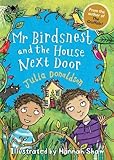Hello Ruby. Adventures in coding https://www.amazon.co.uk/dp/1250065003/ (But I might spend mroe time with a Scratch book).
Nine Open Arms https://www.amazon.co.uk/dp/1743315856
My Little Book of Big Freedoms https://www.amazon.co.uk/dp/1780555067
The Lost Words https://www.amazon.co.uk/dp/0241253586
All of those are perhaps a bit "worthy", and we read a load of other books. We're going to make our way through anything published by Little Gems. These are small, short, books with a clear font and nice illustration. I think these are great for reluctant or new readers. Here's one example, but they have a load: Mr Birdnest and the House Next Door (lovely illustration by Hannah Shaw) https://www.amazon.co.uk/Birdsnest-House-Next-Door-Little/dp...
And things like The London Eye Mystery (which may be a bit too old for my child, we'll see how it goes) https://www.amazon.co.uk/London-Eye-Mystery-Siobhan-Dowd/dp/...
We're still reading a few heavily illustrated books. I love Kate Hindley's work, so I'm buying The Knight Who Said No! https://www.amazon.co.uk/Knight-Who-Said-No/dp/1788002083


The humour is subversive, the illustration is lovely, and these ("This is not my hat" is another) are great books for younger children. My child loved it, and the people I've given this to have gone on to buy other books by the writer or illustrator.
"Mr Birdsnest and the House Next Door": https://www.amazon.co.uk/Birdsnest-House-Next-Door-Little/dp...
Little Gems are a set of books printed on reduced contrast paper, with a large clear font. They're short, simple, but fun. They're good for younger readers or for slightly older reluctant readers. My child enjoyed reading this book, and loved the illustration. The other child I gave this to took out other books in the Little Gems series from the library, and bought other Julia Donaldson books with her pocket money.
"Code: The Hidden Language of Computer Hardware and Software" https://www.amazon.co.uk/Code-Language-Computer-Hardware-Sof... I had a friend who knew a lot about the software, and knew a lot about hardware but their hardware knowledge was a bit patchy. Code helped solidify their knowledge. If I could have afforded it I would have given them The Art of Electronics and the companion Student Manual. (This was in the 1990s. I haven't read the new version and I don't know how well it works today.)
"Bomber Command" https://www.amazon.co.uk/Bomber-Command-Pan-Military-Classic... I liked this book because it describes how we (the UK) went into world war 2 with ethical notions around not bombing civilian populations and ended up fire-bombing several heavily populated German cities. It's also eye-opening about the scale of this part of the war, and the cost in lives of aircrew.